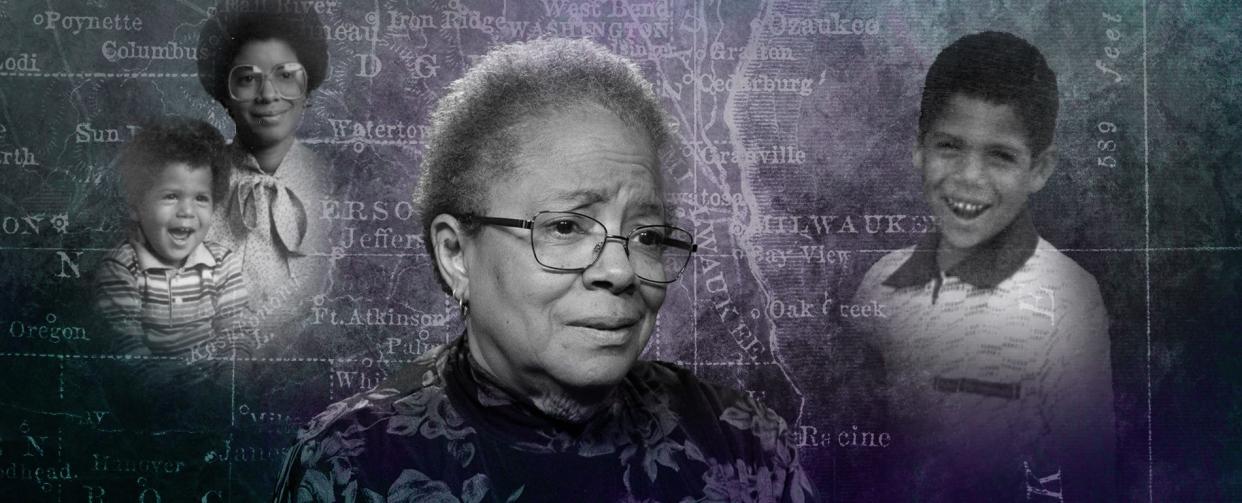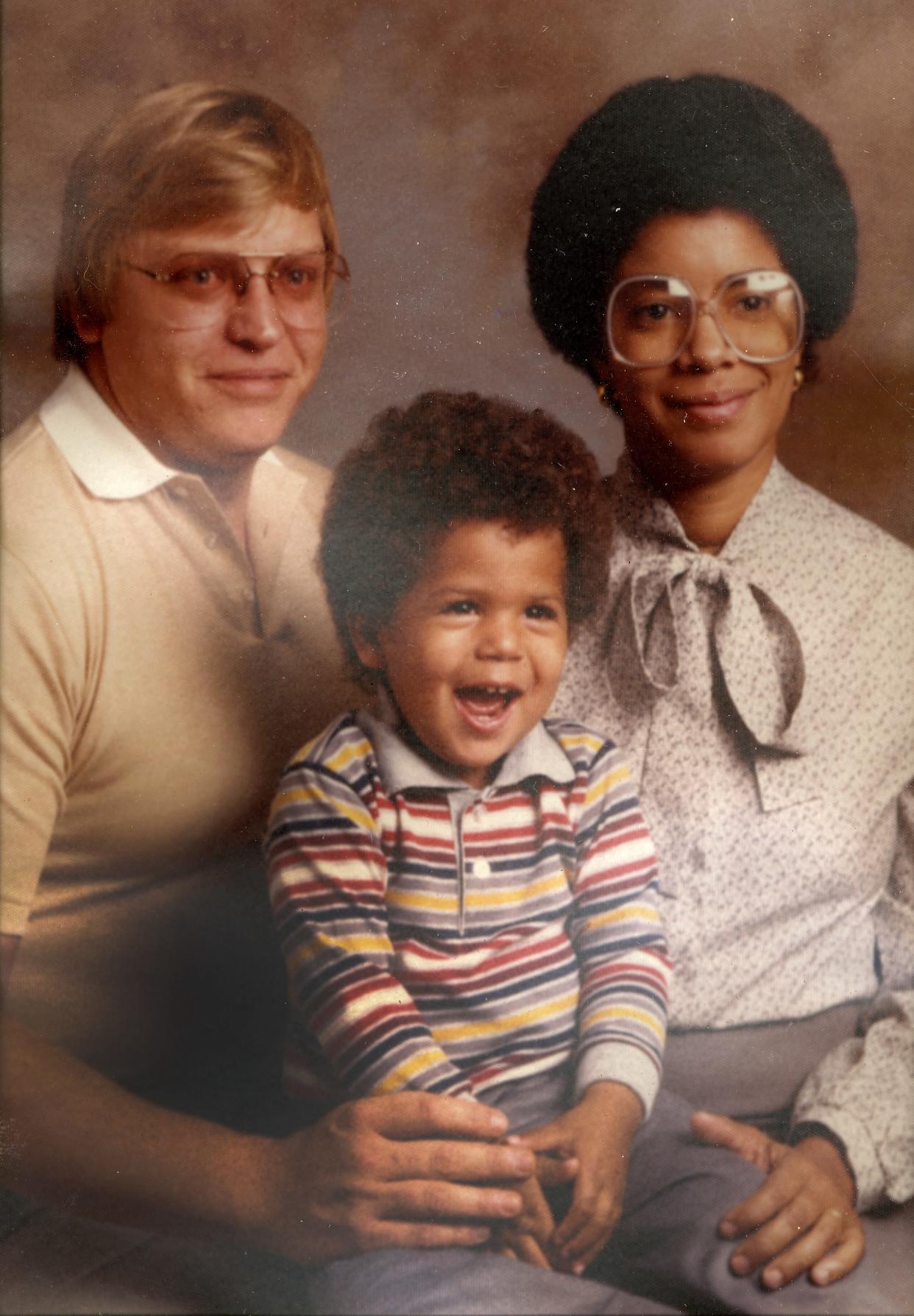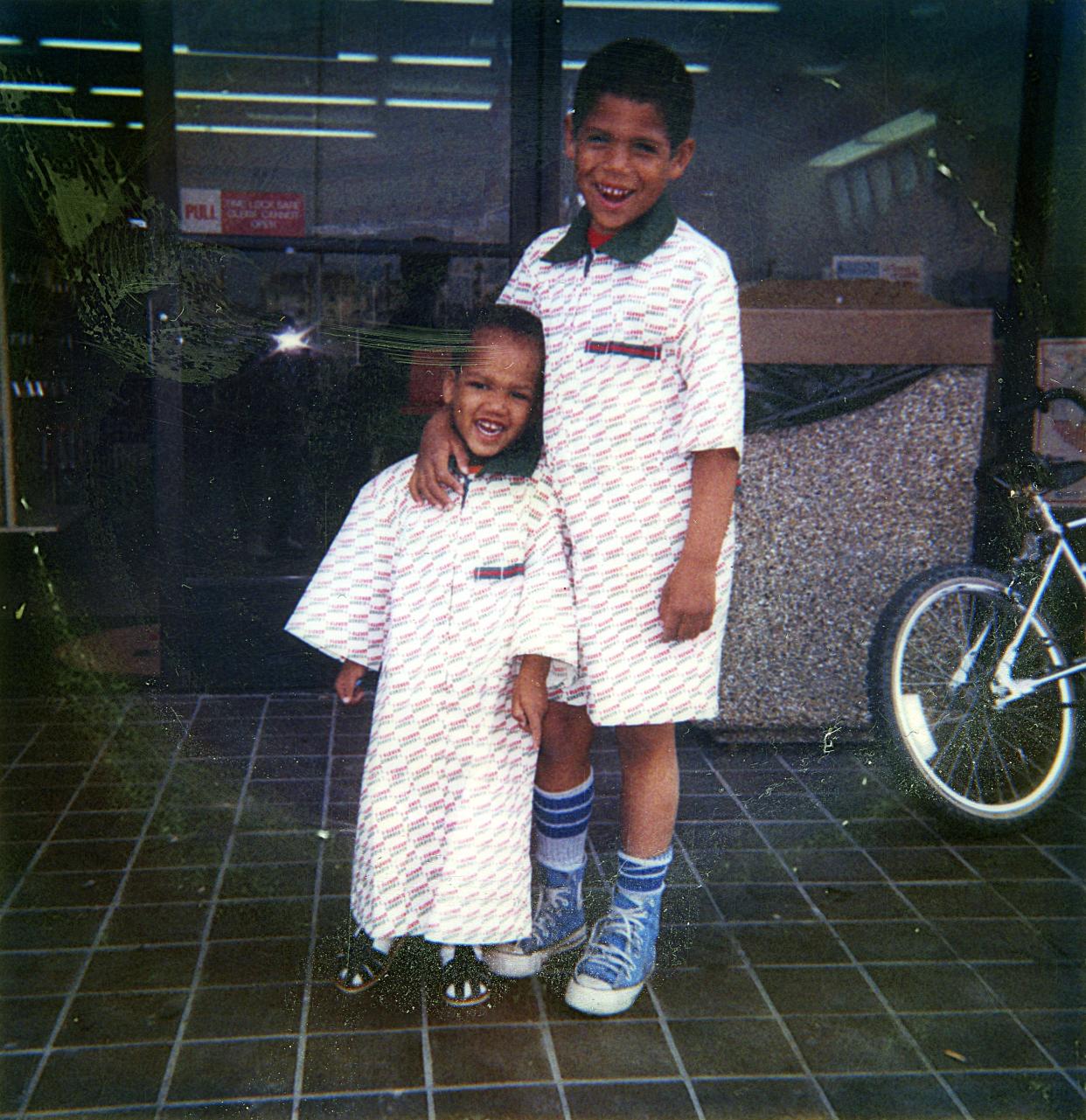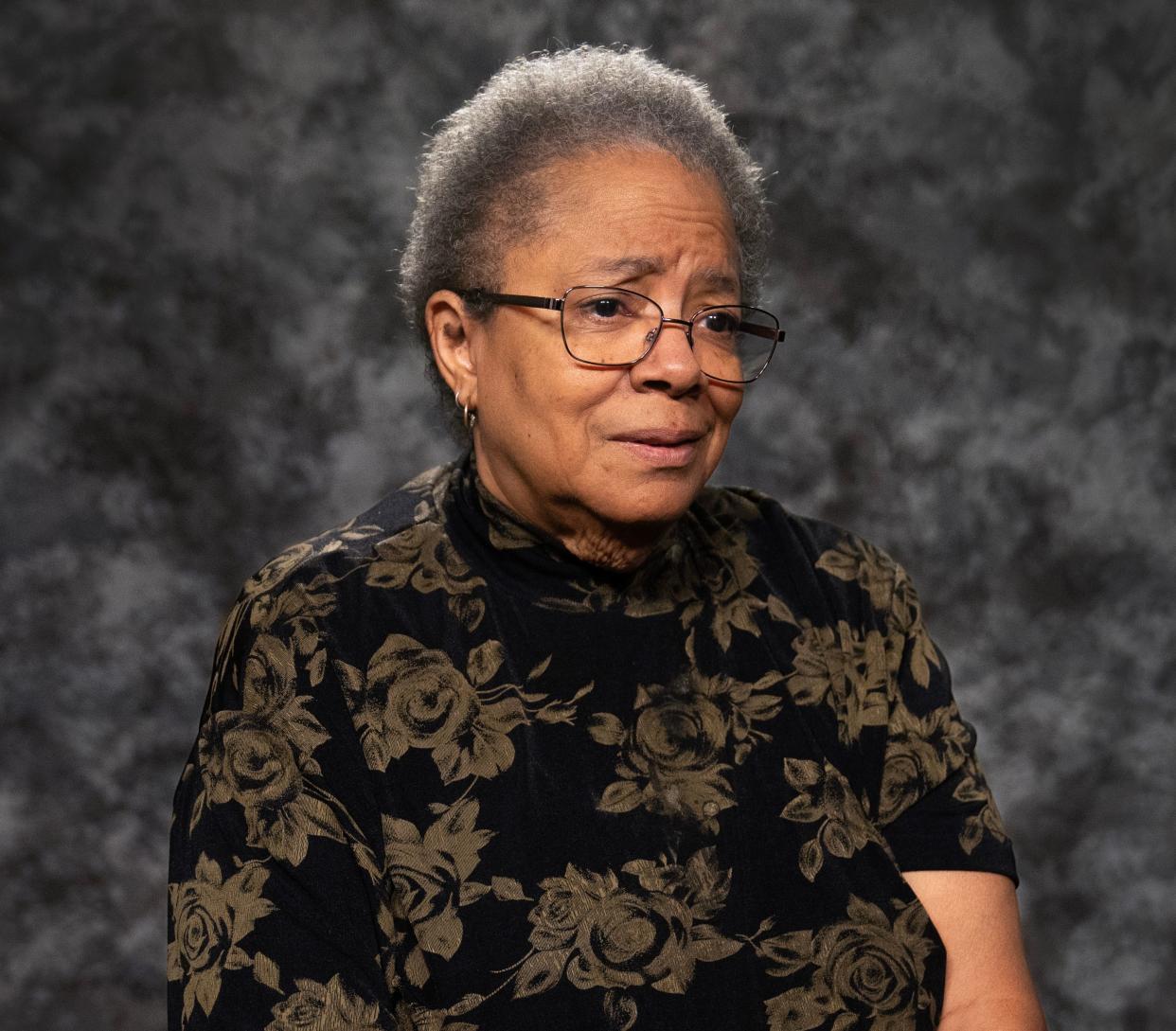Her son ended his life with a gun. Driven to her knees, she found hope.

If you or someone you know is struggling or in crisis, call or text the National Suicide Prevention Lifeline at 988 or text “HOPELINE” to the National Crisis Text Line at 741741.
In a dream, Yvette Woelfel heard a startling message about her son, Kyle, who was just 3 years old at the time.
A deeply faithful woman, Yvette knew it was God’s voice. The message was as simple as it was stunning: You will not have Kyle your whole life.
Yvette and her husband had adopted Kyle only months earlier. Then her husband died suddenly of heart failure.
In that deep pain, it was Kyle who was becoming her reason to live. And now God was saying she wouldn’t always have him.
She wouldn’t accept it, couldn’t accept it, couldn’t fathom it.
“Kyle was my heart and I was his.”
Trying to fit in
Growing up in Atlanta in the early 1950s, Yvette had a strong sense of justice and purpose. She threw a tantrum when told to go to the back of the bus with the other Black children. Her parents decided it was best to move north. They settled in Beloit.

Yvette graduated from the University of Wisconsin-Madison with a degree in teaching special education in the early 1970s. There she met the man who she would later marry. A friend of hers was dating Ted and she wanted to show him off.
Yvette was not impressed by him at first. “And I was married to him six months later,” she said.
Ted was white and they faced discrimination living in Green Bay.
“It was only four years after Dr. Martin Luther King had been shot and killed,” she said. “We were pioneers. The love that we had for each other superseded everything else.”
By the early 1980s, she and Ted moved to Nevada. Yvette was a field representative for the corporate headquarters of a convenience store chain. Ted worked in materials management for a hospital and later in sales.
Life felt too busy for children, Yvette thought. Ted thought otherwise.

“You need a kid,” he told her.
The couple visited an adoption agency and soon enough, they had Kyle.
Just months later, Ted died suddenly from a heart ailment. The couple had breakfast and two hours later Ted was dead.
“If you put your hand in my chest, it would have just disappeared inside of that huge hole,” Yvette recalled.
After her husband’s death, Yvette adopted another boy, Nathan. She and her boys moved back to Milwaukee in 1989. Kyle was 9; Nathan was 5 and she became a teacher.
Things were hard for Kyle, Yvette recalled. His birth father had thrown him against the wall when he was three months old leaving a flat spot on the back of his head, causing some level of brain damage.
“His whole thing was trying to fit in with what he carried inside of him. I don't think most people ever saw the struggle that he went through, to read, to process,” she said. “At the same time, he would come across as extremely bright and funny.”
With Yvette advocating for him – often ferociously – in an educational system she understood well, Kyle made it through school, thriving in things such as Boy Scouts. But he struggled mightily inside. At one point in high school, he wrote in a paper that he would be dead if not for his mother.

As Kyle grew older, things got even tougher. He started to hear voices and feel like there was more than one person inside of him.
At 19, he attempted to take his life by swallowing half a bottle of ibuprofen. He got treatment and continued to struggle. Holding a job was a challenge.
In his late 20s, Kyle moved to Florida. Yvette remained in Milwaukee where she worked as a special education teacher.
When Kyle was 32 years old, Yvette was in her classroom after school and found herself saying words to the effect, “He is still here.” It was almost three decades since she had heard he would not always be with her. It had been incredibly hard at times and yet he was still alive.
He was still here.
In the quiet classroom, Yvette’s teaching aide looked up and asked what she had said, if she was referring to Kyle.
Yvette quickly said, no, waving off further discussion.
“I said, ‘Nothing, nothing, nothing.’”
A week later Kyle was dead.
Deep, desperate wail
Kyle had been living in an apartment in Tampa and told his mother he was working with veterans. They talked often, including the day he took his life in November 2012.
Yvette had just gotten home from work. She recently moved into a new house on Milwaukee’s north side, which Kyle had helped pick out. She thought the knock at the door was maybe because she had left her trash cans in the wrong spot.
Instead, it was a police officer. He asked if Yvette knew a young man in Florida. The officer then told her Kyle had ended his life with a gun.
Yvette made a deep, desperate wail. She can still hear the sound.
The daughter of a friend who heard it would later tell Yvette she thought it was from a wounded animal.
Yvette knew Kyle had guns; he had grown up around them. She taught her boys that guns were not toys, that they had only one purpose, to kill. They must be respected.
Ted had been a hunter and he introduced Yvette to guns and hunting. She had long been a gun owner and still is.
Her friend took her guns the night her son died but returned them a short time later.
Yvette doesn’t blame the gun for the death of her son.
“I don’t believe guns are evil. They are inanimate objects” she said. “I didn’t know the load he carried. I thought I did. Suicide is a moment thing. You lose all hope and either you pull that trigger in that moment or you get through it.”
‘There is hope’
Yvette got up the day following Kyle’s death and after making needed calls, she was perplexed as to what to do. She decided she would go to work. The children at Lincoln Center of the Arts, the school where she taught, needed her.
She opened up to co-workers about Kyle’s death and was surprised when four people on the small staff shared their own stories of suicide in their families.
From then, Yvette has been open about Kyle’s suicide, not shameful, but proud of who her son was.

“I want this to help, not like a faceless person on a helpline or an encounter group, I want people to come in and get their hands dirty, to hurt, to just scream, to help show you how to survive this,” she said. “I want people to know there is hope.”
Even with that resolve, difficult days were ahead for Yvette. She found herself asking: Can I love a Jesus who let my child die?
Her bottom came about six months after Kyle’s death. She sat on her bed and said, “Lord, I'm not going to kill myself, but you can take me. You can take me right now. I can't handle this.”
And she heard the voice reminding her of what was said 29 years earlier. It was followed by a question: Would you rather I had not given you the gift at all?
“That took me to my knees,” she said.
Yvette had a decision to make. She turned to God and the Bible. There she found answers and still does, in particular in the book of Job, a man who knew suffering.
At one point, God commands Job to stand and answer.
Upon reading, Yvette found herself being asked the same question: “Stand up like a woman and answer me if you can.”
“I realized the guy who makes the decisions about our lives, he’s in charge of us. And I'm humble enough to accept that,” she said. “So whatever happens to me, my faith is strong and it’s his decision.”
At 73, Yvette is retired from teaching and leads a Bible study. She is working pretty much full time as a caregiver to her 98-year-old mother.
As she reflects back on all she has gone through, the tears and laughter, the joy and hardship, she says she wouldn’t trade any of it.
“We are all a gift to each other. We are a gift from God. I realize I would not be the person I am without those 30 years of having that little boy,” she said. “I don’t ask what could I have done differently. It wasn’t what I wanted, but the fact is we both belong to God.”
Project credits
Contributing reporter: Natalie Eilbert
Data analysis, graphics: Andrew Hahn, Daphne Chen, Kevin Crowe, Eva Wen
Photos, video: Mike De Sisti, Bill Schulz
Story editing: Greg Borowski
Photo editing: Sherman Williams, Berford Gammon
Copy editing: Ray Hollnagel, Pete Sullivan
Design: Kyle Slagle
Social media: Ridah Syed
About this project
Milwaukee Journal Sentinel reporter John Diedrich examined the full extent of gun deaths in Wisconsin during a nine-month O’Brien Fellowship in Public Service Journalism at Marquette University.
The project reveals the full picture of gun deaths in the state and tells the stories of people affected by gun deaths and those trying to find solutions.
Diedrich was assisted in the project by Marquette student researchers Alex Rivera Grant and Ben Schultz.
Marquette University and administrators of the program played no role in the reporting, editing or presentation of this project.
This article originally appeared on Milwaukee Journal Sentinel: A former Milwaukee teacher tells how she endured her son's suicide
